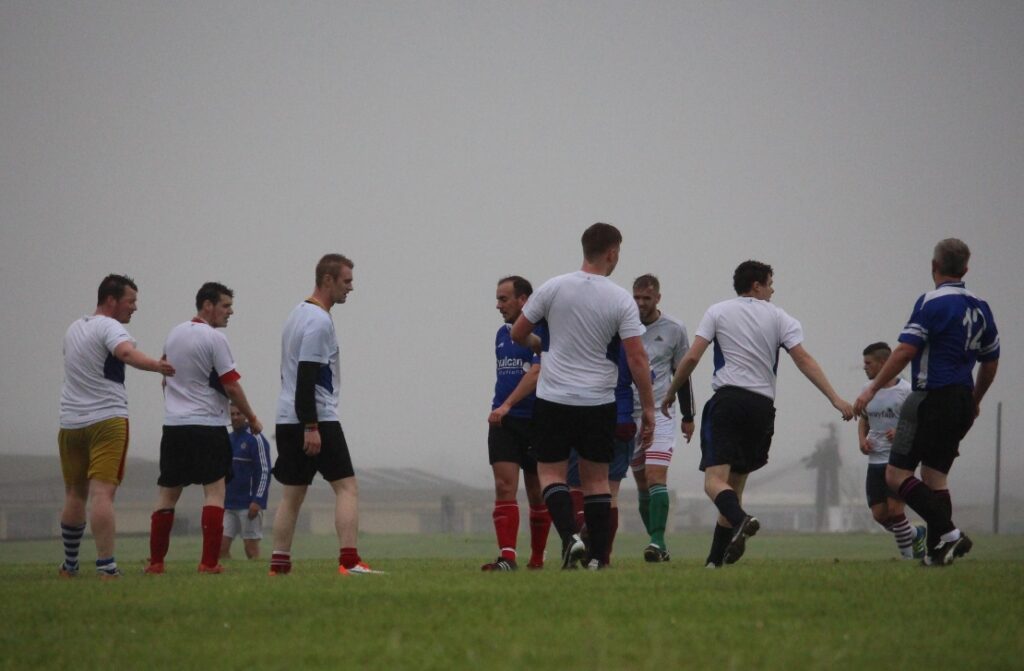- Positive Attitude

It’s so easy to be critical or to give out about other people but why are many of us like that? Is there something wrong with us? Are we unusual to be critical? Can we do anything about it? Well, the answer is yes. So, let’s first look at why we are critical. The reason is because it’s easy to be critical. Did you know we are three time more negative than positive? According to research done on human behavior we process negative thoughts more quickly than positive thoughts.
Many people will tell you they are not negative but think about it, we enjoy gossip and when you think of gossip it’s normally about someone else and what they have done wrong. What about newspapers? They are mostly negative stories – war, deaths, business losses and we enjoy reading them. What about women’s magazines nearly every one of them features articles about what can go wrong with women’s health, they give advice on how to deal with difficult relationships, how to get that amazing man that doesn’t seem to exist. Negativity sells magazines newspapers and keeps conversations fluid.
I used to do an exercise when I was teaching people about developing a positive attitude – I got them to make a list of 10 things they didn’t like about the room they were in. Always easy and took just a few minutes, then I changed the question and asked them to list 10 things they liked about the room – always more difficult so it takes time to develop a positive approach but a worthwhile exercise.
The key is to make sure you are not causing someone damage with false information, yes, it’s tempting to flavor information you have heard to make it more sensational but you are doing someone an injustice and that is not acceptable. How about turning it around and finding something good to say about that person?
I remember having a conversation with a senior manager in a company I used to work for. At his meetings, he was constantly critical and was doom and gloom about the organisations financial situation. I met with him after my first meeting with him and said I thought he was being very negative and was missing an opportunity to motivate and inspire his team. He listened intently and I though that’s good he has got the message.
At the next meeting he used the same approach – doom and gloom and then said “I know people in this room think I’m being negative but I’m not, I’m being realistic”. A couple of meetings later he said he didn’t see value in having this meeting as people didn’t have much to say. The problem was that every time someone tried to talk about something positive, he would be critical about what they said. So, in the end no one commented and the meeting no longer took place. It led to a number of problems as people were no longer in the loop as to what was happening.
There is a lot of value in being positive and looking for inspirational stories as it can motivate people. Research has shown that positive people are more productive and the bottom line is positively impacted as well.
Taking a positive approach and thinking about others has a very positive impact on people’s lives. I was at an airport a week ago and sat having a coffee. I was close to the airlines ticket desk which had just 1 person on duty and a queue of 6 people all demanding assistance from this sole person. I actually felt sorry for her. Them an amazing thing happened, one of the people in the queue who had been helped by the person went and bought a black coffee and a container of milk and went to the desk and said to her I know you have been very busy and working hard but thank you for sorting out my problem and please have a coffee on me. The staff member was shocked, not many people appreciated what she did
- Do we need teamwork?

Many of us are currently working from home due to the pandemic. At first it was great we enjoyed the thought of being at home all the time. No more commuting, no need to deal with colleagues that irritated us, no worry about the boss having a bad day, nobody watching over our shoulder. While that all sounds great many of the people I know, who are working from home have realized that they are missing being at work.
They miss the commute and people watching. The crazy drivers who only think of themselves. The weird looking passenger on the train. The Buskers they see in the stations and public places, the discussions about last night’s TV. We miss all of this interaction because it all became a great conversation topic when we met up with our colleagues at work. Also in reverse, the new person who joined the department, the boss ‘s latest idea about motivation, the gossip about work, the journey home, all provided us with conversation when we got home from the office with our spouse, partner or friends.
All of this interaction has slowly slipped away. Yes, we talk to our spouse, partner, friends while working from home but what is there to discuss about? The latest depressing results of Covid infections, whose turn it is to empty the dishwasher? Who is going to walk the dog? So, while we may be happy at home, is it having a detrimental effect on our wellbeing/mental health?
So why is Teamwork important? First and foremost, we are social beings. Yes, we can get along with ourselves but long term on our own without social interaction can impact our mental health. This is why solitary confinement is used as punishment for problem prisoners. It is very tough not to be with other people as we need social interaction. There is a percentage of people who thrive on being on their own and that fine. But 90% of people need social interaction so it’s important to consider its impact.
Teamwork is something that has existed since time began and it’s believed that gave us an advantage over other species. Teamwork allows us collectively, to solve problems that we probably may not have been able to do on our own. Another advantage of Teamwork is that it boosts efficiency as we share the work load, which gets the job done. It also boosts our morale all of which helps our mental health.
So, what can you do about Teamwork while working from home? Well, keep in touch with your colleagues, use WhatsApp or similar communication tools. Why not send messages or comments to let people know you are there and thinking of them? Better still, call them, (it’s more personal when talking to someone than just reading a message). Discuss non work issues, but try to avoid Covid discussions (that only leads to depression). Tell them stories of funny things that have happened – your partners latest attempt to do DIY, your supermarket experience, this will encourage like-minded behaviour and will help your wellbeing/mental health because you are not on your own, you are part of the team.
Why not arrange social meeting outside of work hours? Meet at a coffee shop, a restaurant, or a pub. Try this once a month and keep the team spirit going. The advantages? Well, you can talk about the crazy drivers who only think of themselves. The weird looking passenger on the train. The Buskers you see in the stations and public places, discuss last night TV. It will have a positive impact on your mental health and you will feel you belong!
So, Teamwork is more important now than ever before – enjoy it!

- What are we missing?
If your boss asked you to get 20 of your best people together for a project that would take around 2 hours and will take place outside of the office, I’m sure that you could probably manage that effectively but what if there was a gale blowing (40kts) and it had been lashing rain for the past 3 hours and its freezing? Oh, and they have to wear t-shirts and shorts, just to add to your problem.
So, what would you do? How would you encourage or inspire your team to give their full support? Would any of your team refuse? Yes, this is a bit extreme but I was amazed to see a group of 22 guys out on a pitch in these conditions over the weekend. The weather was atrocious, gale force winds, freezing and it had been raining all day and they don’t get paid for doing this. Then a question occurred to me, why is it that we as bosses can’t inspire our staff to be so passionate about what they do from a work perspective.

Many of our work teams play sports at weekends, they play in tough conditions and they do this week in week out throughout the year. Yet sometimes we don’t get this commitment in their work? Who’s to blame? Did we miss this chapter in the book of effective management? Did we miss the lecture in college on effective motivations?
Well, the reality is that we don’t often consider motivation or give it the time and energy in its pursuit, well no one motivates us so why should we bother? Just imagine if you got 50% of the energy and passions that people put into sports in their free time and you managed to get that into the work environment? So, what are we missing? Is there a magic formula?
Firstly, it is your responsibility to motivate your staff even though no-one motivates you (more common than you think in management). Motivation inspires and brings out the best in your team. But and it’s a big but, it doesn’t happen overnight, it takes time, sometimes weeks and months. Many managers say I don’t have a budget to motivate my team but motivation can be done with little or no cost.
If you have a demotivated or a minimally motivated team or haven’t even considered it as an important issue then it will take time for your team to believe that you are serious about motivation. You have to take the time to build the trust with your team. For those of you who are more forward thinking and who did read or attended the lectures on motivation, then you have to persevere with motivation, it can’t be this week’s theme, it has to be on-going. But look at it this way, you will get better productivity, you will have a happier workplace, your team (and you by default) will become more successful and you and your team will stand out in the organization.
So how can you inspire and motivate your teams? Firstly, you need to build a plan; what are you going to do this week, next month, in three months and in six months. Yes, it has to be a long-term plan. You could start by conducting an informal survey to see where motivation levels are today. Most important is that you have to share the results as soon as possible when completed. Yes, it’s a risk, as the results could be bad. But it’s a starting point, if morale is running at 30% then you have to tell the team and get them together and ask what they (not you) can do to help improve morale as it impacts everyone. They will come up with great suggestions and you will find many of the ideas will be low cost or no cost.

There are many forms of action you could take, staff member of the month, best idea of the month, best example of customer service, most innovative new idea to reduce complications in work processes. But the key is to make sure you reward the people concerned and to explain why they are getting rewarded to the rest of the team. If you want people to follow suit they need to understand what behaviors are required to be recognized by their manager or boss.
Recognition is another form of reward that helps improve morale. This can be done in many ways. A staff presentation highlighting individual contribution to the business. It can something as simple as coffee with the boss. To make it easier on the boss I suggest you encourage a number of people to join you (maximum of 10).
A written letter, not E-mail because it’s too impersonal, has a magical effect because as well as the impression it creates for the individual who receives it, he/she will show it to their colleagues and will also share with family and friends – the end result is that it creates a very positive impression of you and also your organization.
Another motivator is involvement. Staff like to be involved in decisions that affect them. This can take the form of getting a team together to look at better ways to operate, ideas to enhance the work place. Also getting them involved in organizing plans to get the whole team together for an away-day also has a major impact.
Communication is another powerful form of motivation, letting your team know what is going on, why specific decisions are being made, the reason why people are getting promoted. Tell them how the business is doing, who the competitors are and what they are up to. You can also share what customers like about us and what they don’t like, it’s all very beneficial to staff. It one of the easiest and effective ways to motivate staff as it helps them feel part of the tea.

I was asked to review a major Call Centre that was having problems with motivation and productivity. It required me to fly across the globe to visit the location. I asked to meet with 2 of the most junior staff, 2 mid-term staff and 2 long-term staff. No supervisors or managers were involved to ensure that the staff were comfortable giving unbiased feedback. It turned out that the main issue was the lunch room. I took a visit and it smelt bad, it had no decorations and a lot of the furniture was old and damaged and part of the carpet was missing.
This was a global corporation and I was amazed at the condition of the place. I asked the Director to meet me in the kitchen and he was shocked (of course he had never visited this part of the building) we then invited the manager and the supervisors to see what had gone wrong. The supervisors said they had put their concerns with the lunch room conditions in their report to the managers for months but as nothing was done the supervisors gave up reporting it. The manager said he considered upgrading it a year ago but didn’t consider it a priority as he had other issues like equipment and staff recruitment with limited budget spend.
- Taking the plunge

I’m always amazed at the number of people who go for a morning sea swim throughout the year. I’ve tried a couple of time but only once with success as I was concerned about getting frostbite as the sea was so cold!
I asked a few people why they do it, some said it was fun (not sure how) others said it was for health reason, it is good for the blood flow and the heart and keep you healthy. But the majority said it was the challenge. The challenge of getting up from a warm bed and going out into the cold and getting into a freezing sea. The challenge of going in, in all weathers and the camaraderie they get with other sea swimmers.
From a work perspective what can we learn from this?
Well let’s look at how challenging work is for our teams? When I talk to teams of people about work most say they enjoy their work but there’s not a lot of challenge in it. If you ask the Supervisor or Manager they will often tell you they have too many challenges and the pressure of work never ends. So, we have a disconnect.
What if we gave our teams more challenging work? Passing on challenges that we need help with. Teams I have worked with always thrive when given challenges. It adds interest to their job role, it gives them something to achieve, they support each other and it builds camaraderie between the team members involved. Some call it delegation, but the work we delegate must be interesting as well as challenging otherwise they will soon figure out that we are dumping work that we don’t want to do.
If you pass on challenging work to your team, you build their skills, you create a better team environment and you give them the chance to feel fulfilment in their jobs and a great sense of achievement. Doing so, reduces your workload, it upskills your teams and it makes you a more competent and effective leader.
We also need to factor in that sometimes it may not work out to our liking, but they can come up with better and faster solutions so give them the encouragement that they need and step back and let them get on with it.
So why not take the plunge and give your teams a sense of achievement?
Think about what jobs you could delegate and encourage and support and see what happens – you too might just go for that morning sea swim!
